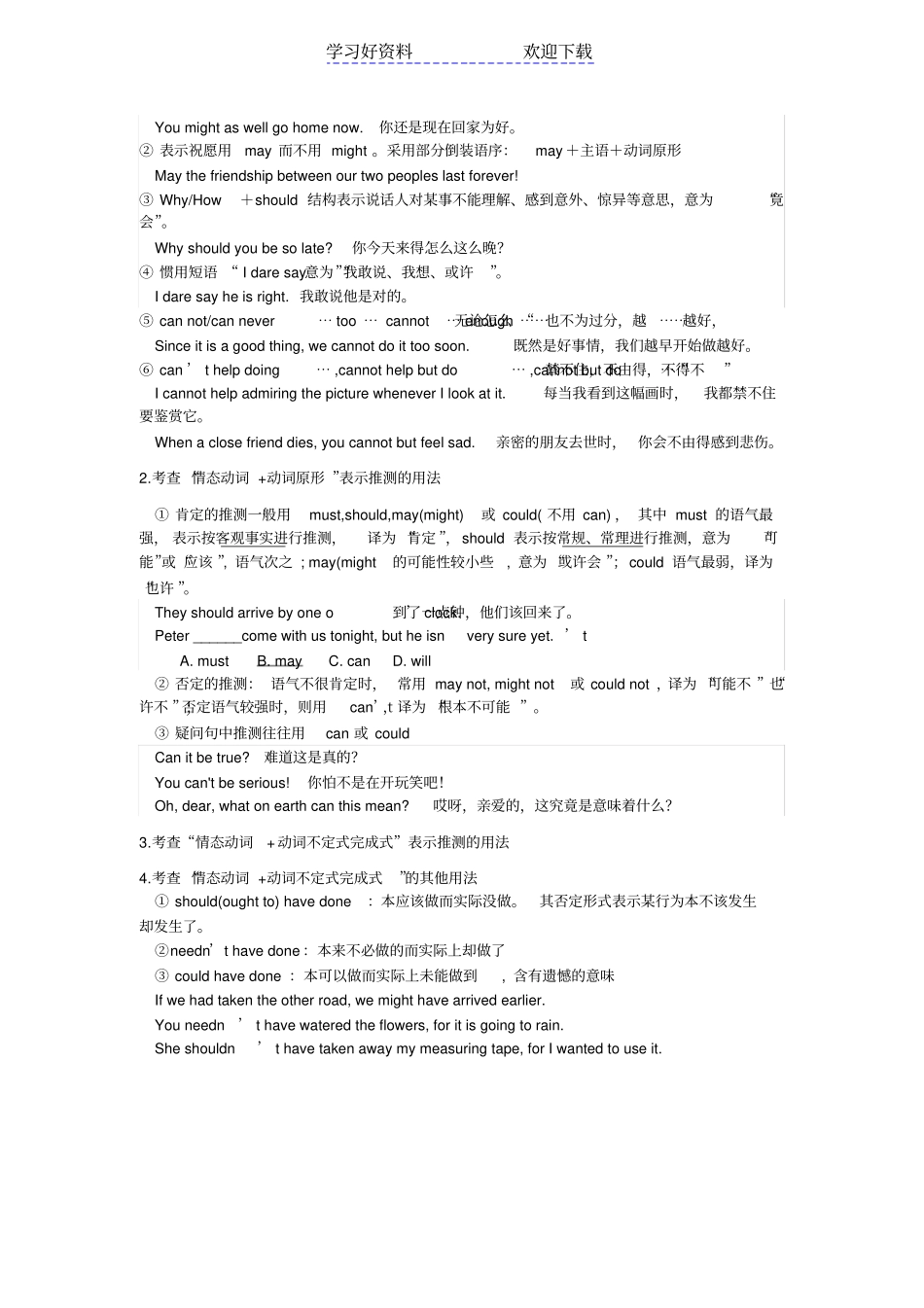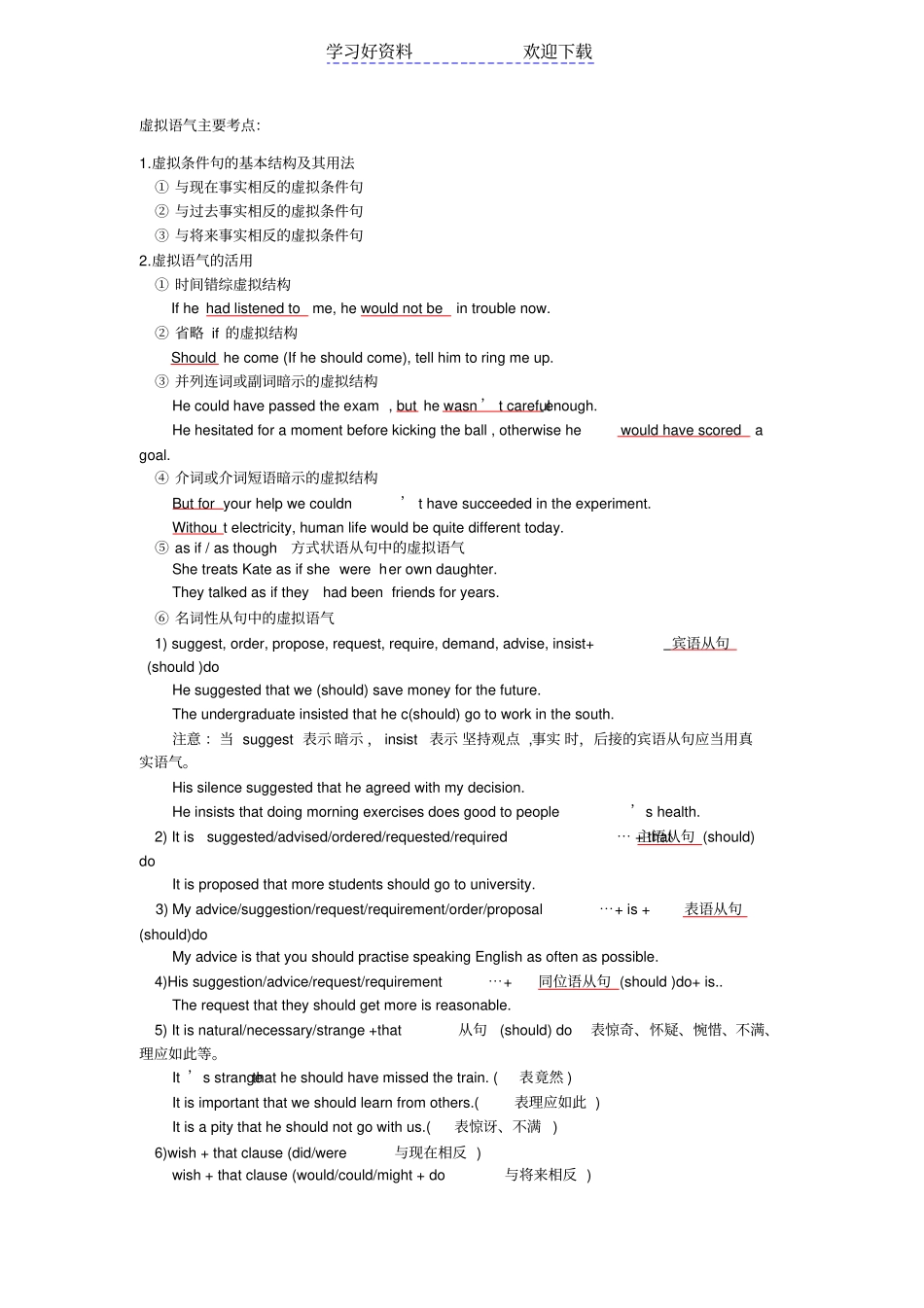学习好资料欢迎下载情态动词虚拟语气情态动词主要考点:1.考查情态动词的基本用法① shall用于人称意义Shall 第一、三人称征求对方的意见第二、三人称说话人给对方的警告、命令、允诺、威胁用于法律、 法规等条文中应⋯⋯,须 ⋯⋯,得 ⋯⋯What shall we do this evening? 我们今天晚上做什么呢?Shall he come in? 他可以进来吗?You shall fail if you don’ t work harder.你不更加努力工作,你就不会成功。(警告)② will用于第二人称的疑问句中表示有礼貌的询问和请求; would 比 will 更委婉 , 其回 答 用“will ”— Would you pass me the book? — Yes, I will. will表示现在反复发生的动作或某种倾向,would 表示过去反复发生的动作或某种倾向,意为 “总是 ”,“惯于 ”; used to 表示过去常常 , 现在已经没那样的习惯了。Fish will die without water.鱼儿离开了水会死亡的。He would come to see me on Sunday when he was in Beijing.每逢星期日他常来看我③ must 用于疑问句,表示责备、抱怨的感情色彩,意思为“偏偏,偏要 ”,mustn ’t表示禁止,是说话人强有力的劝告。cannot 表示 “不可能 ”; need not 表示 “不必要 ”; may not 表示“可能不,可以不”。You mustn't speak like that to your mother. 不准你那样对你母亲说话。If you must know how old I am, I tell you that I’ m twice my son’ s age.— Must I be home before eight o'clock? 八点之前我必须回家吗?— Yes, you must.\No, you needn't./No, you don't have to.不,没必要 / 不必啦。You can't be serious! 你怕不是在开玩笑吧!④ need 作情态动词表示“需要、必须 ” , 通常用于否定句、疑问句、条件从句中,且只有现在时,其他时态用“have to ”的相应形式代替You needn't come tomorrow. 你明天没必要来了。— Need he come now? 他现在就需要来吗?--- Must he come tomorrow? — Yes, he must. / No, he needn't / he doesn't have to. ⑤ dare 作情态动词表示“敢于 ”,用于否定、疑问句和条件句中。She dare not go there. 她不敢去那儿。How dare he do such a thing? 他怎么敢做重要的事呢?If he dare come, I will kick him out....


